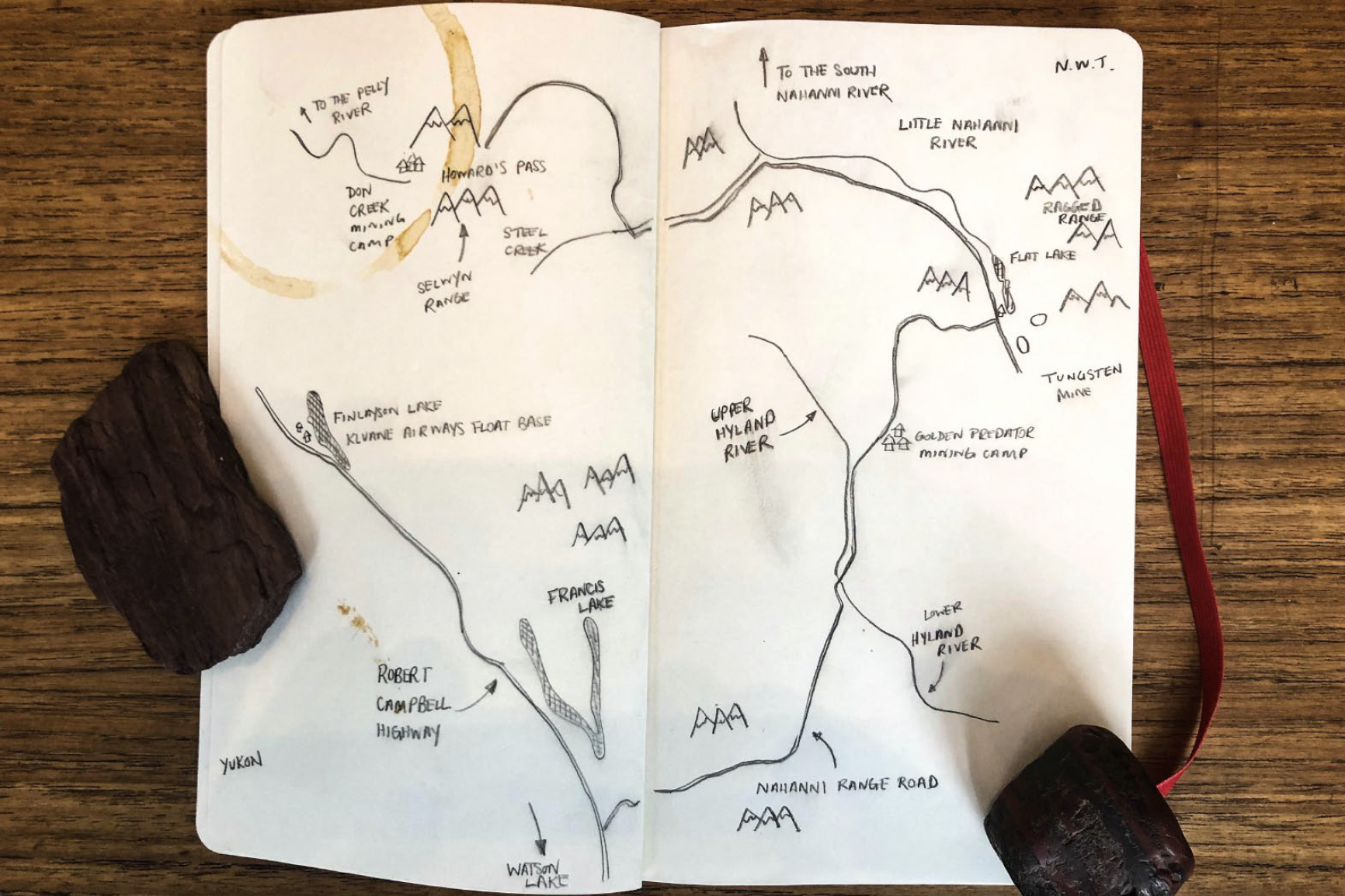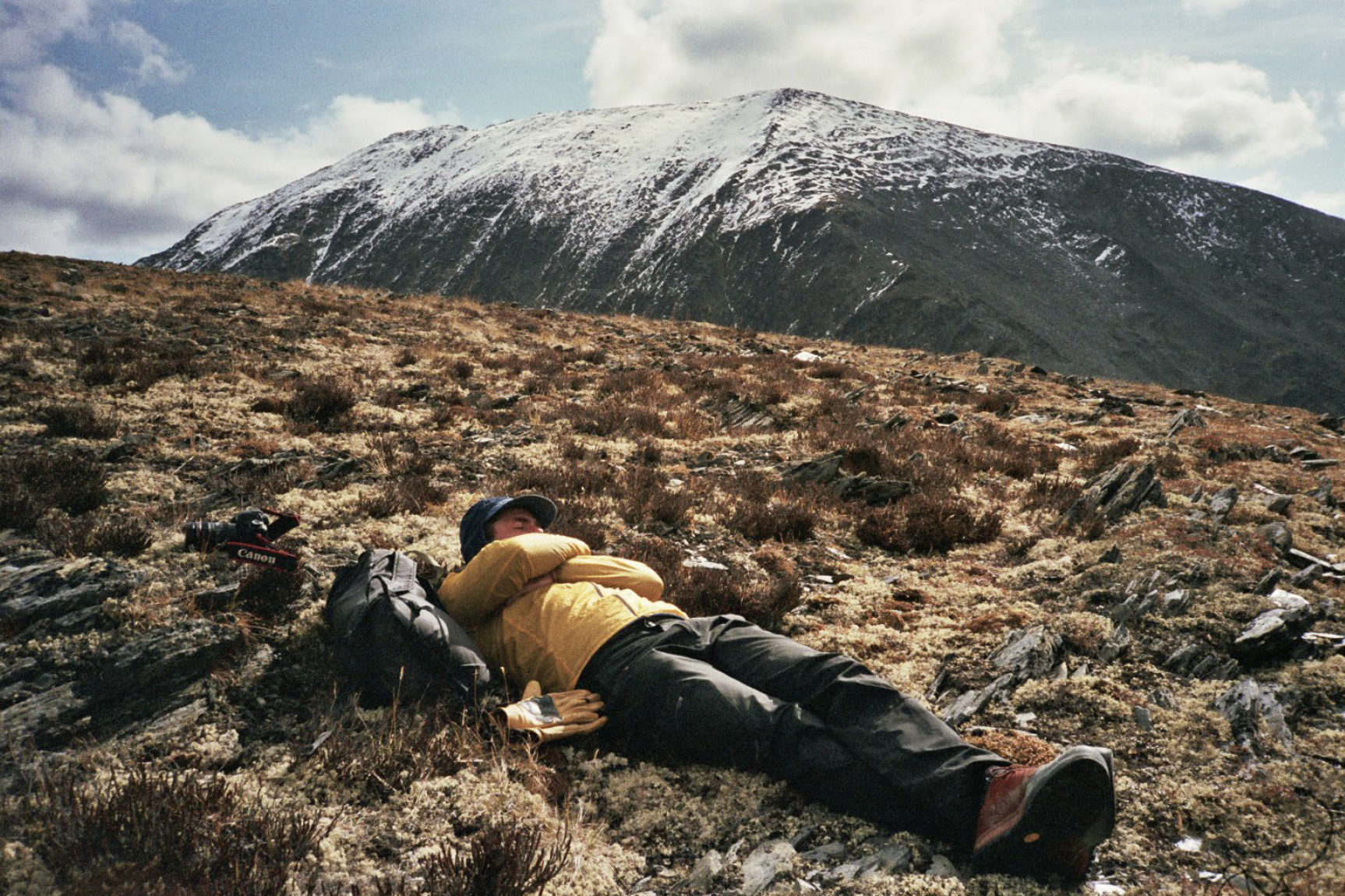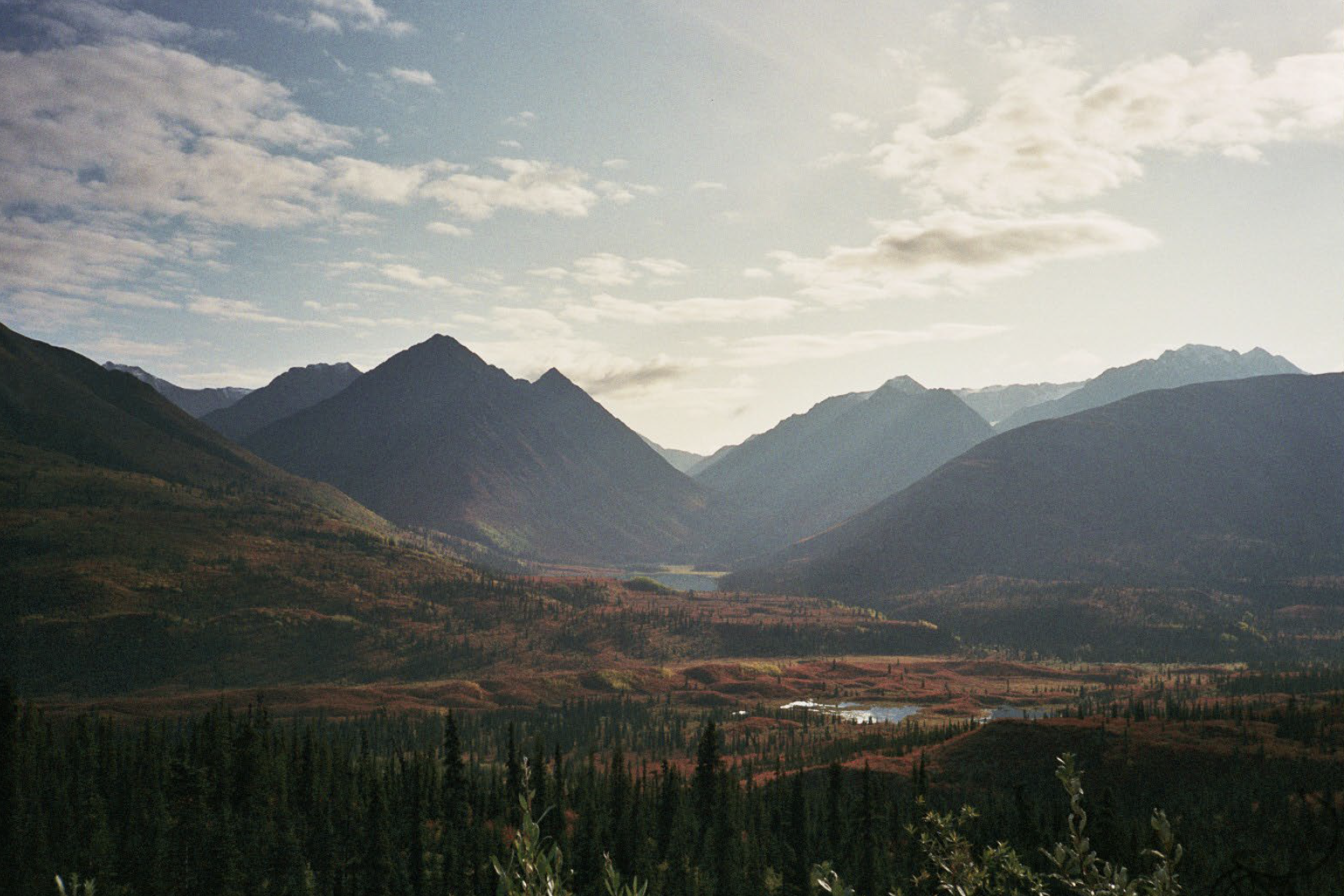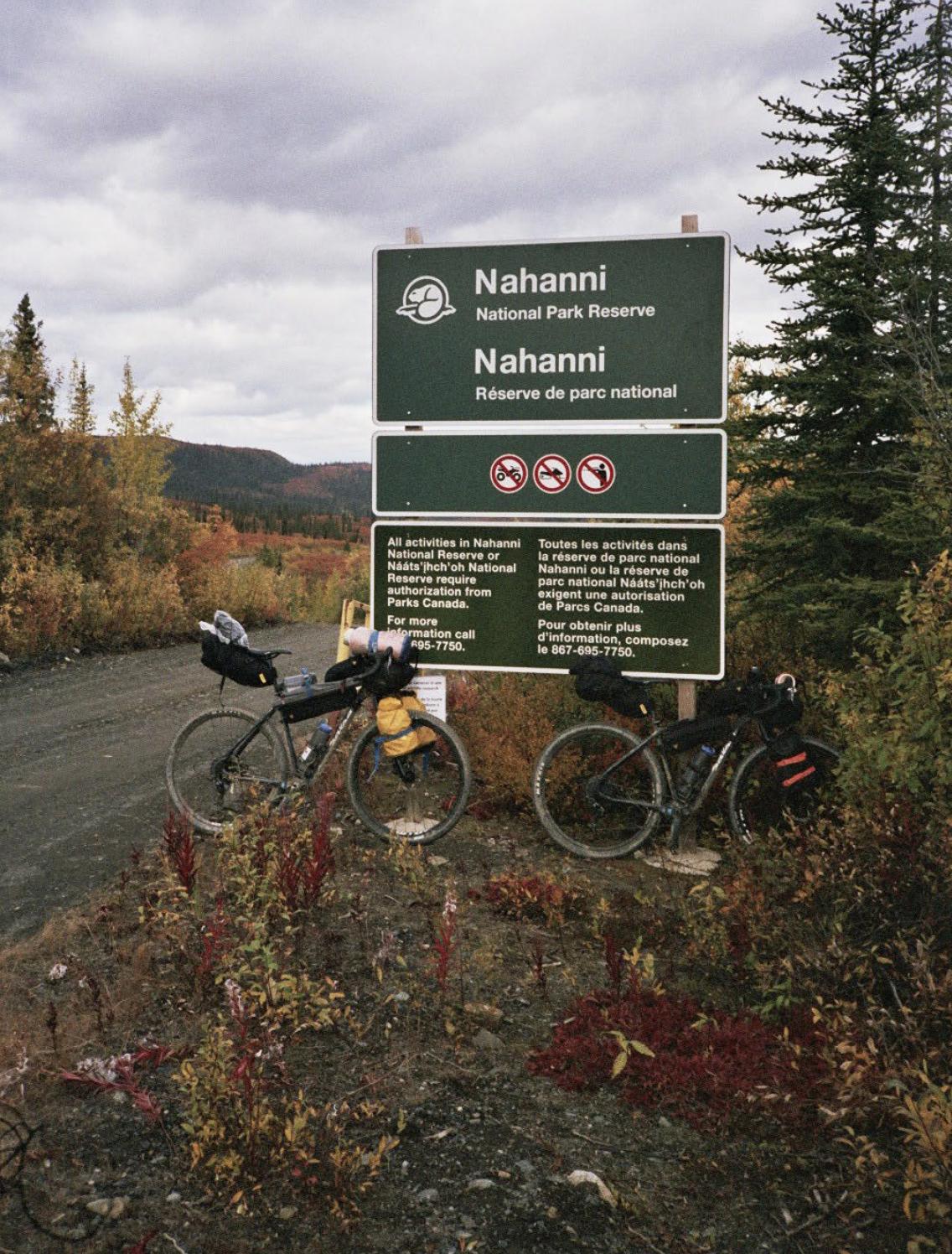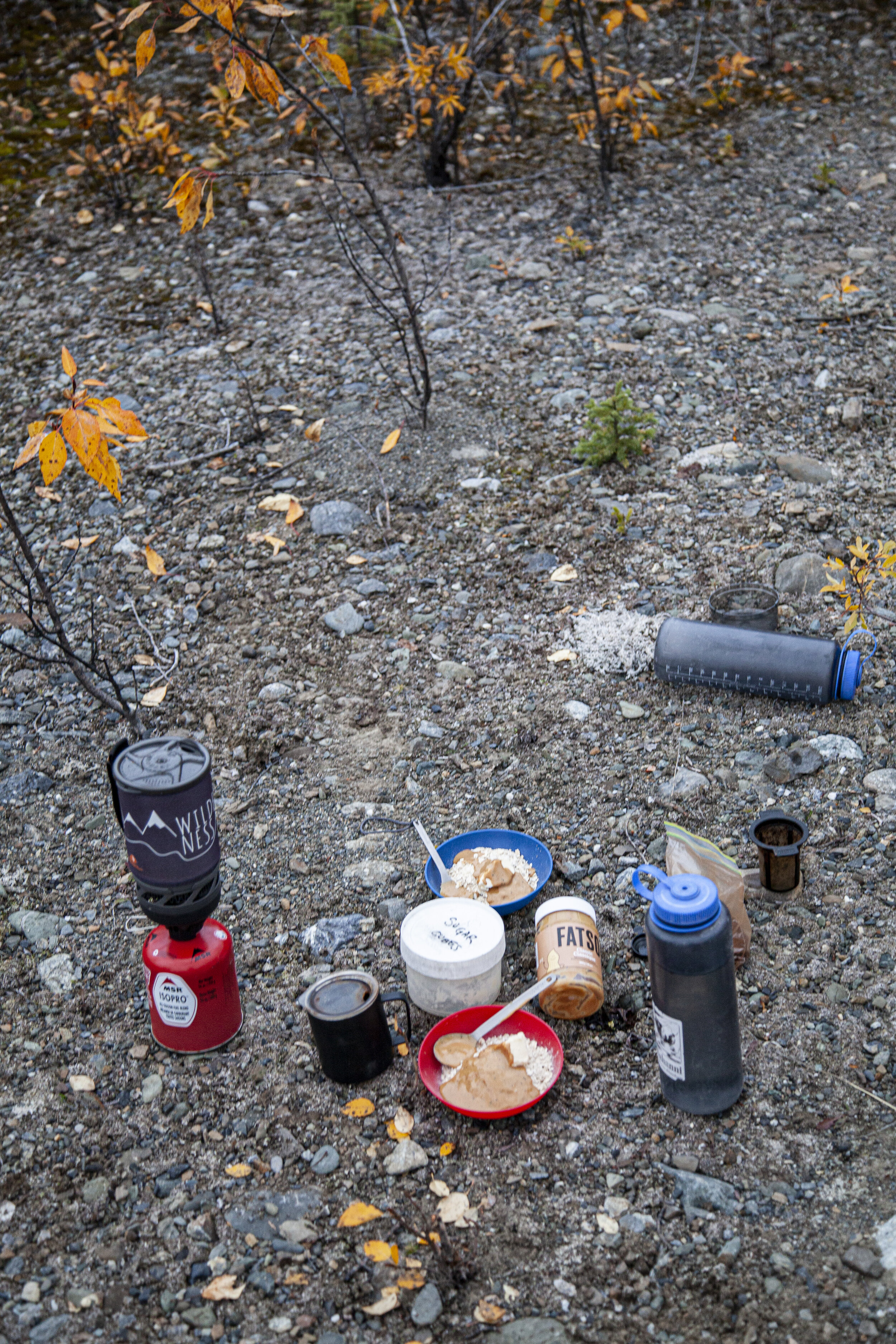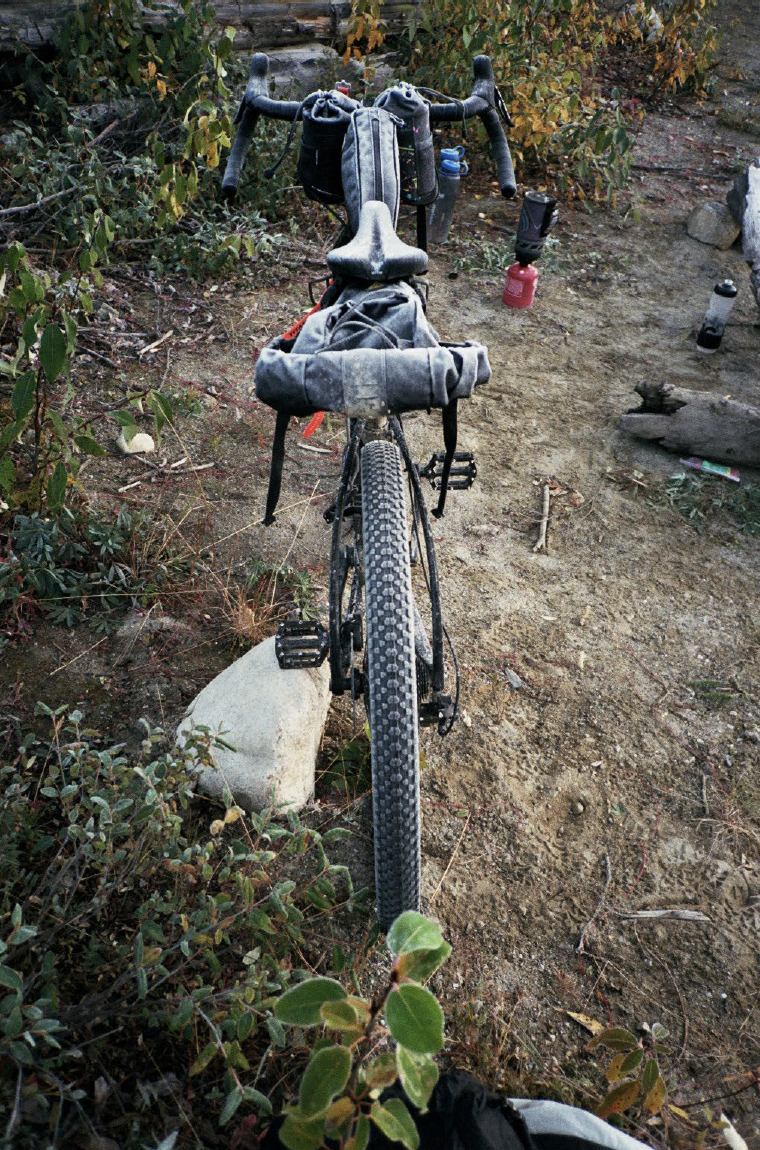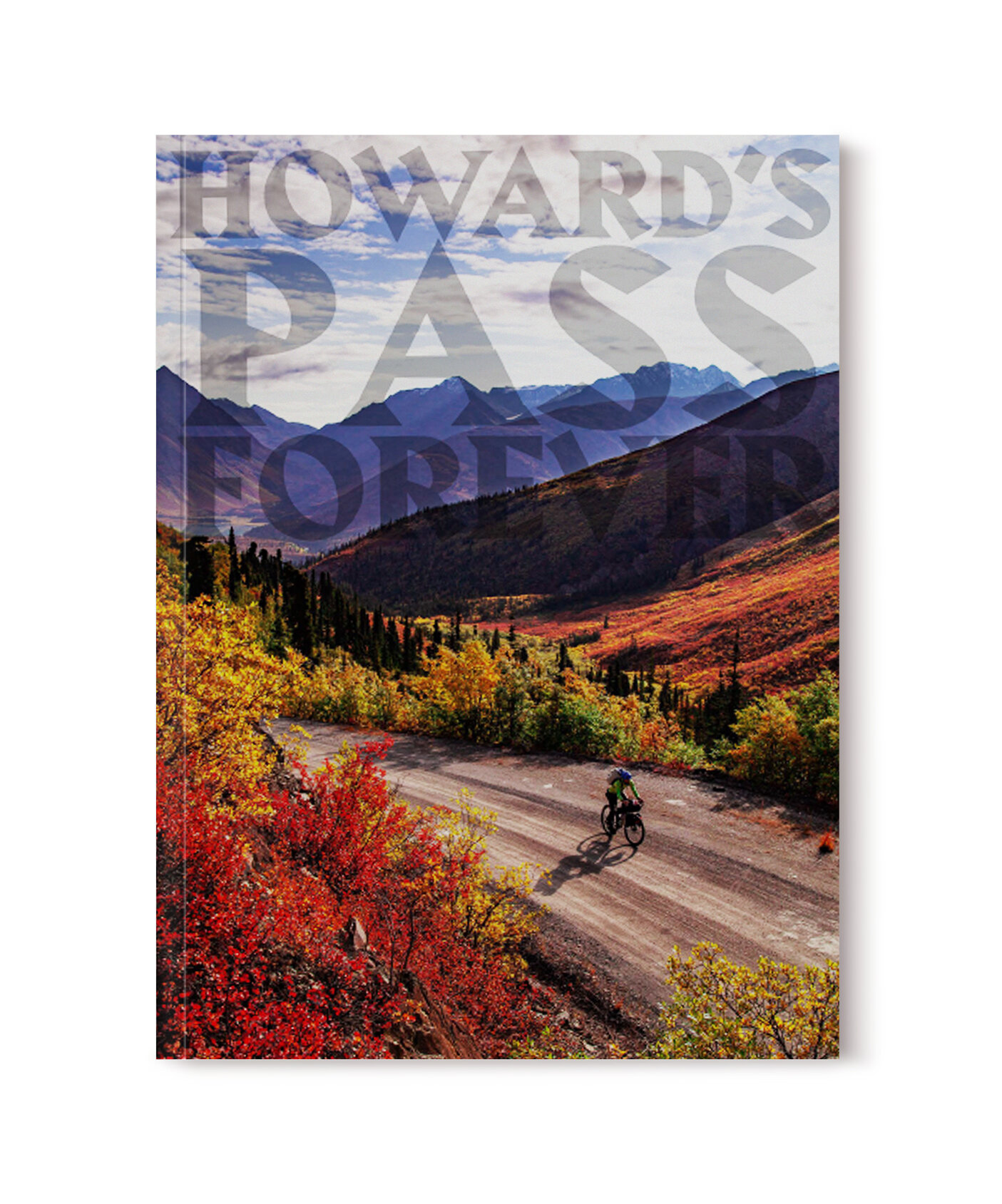Howard’s Pass Forever
words by Joel Hibbard. photos by Joel Hibbard and Kevin Ehman.
A personal journal of cycling the mining roads of southeastern Yukon
Not enough people know about the beauty of the Nahanni watershed. If we do not know something, we cannot love it; if we are not loving it, we will not be stewards of it. My hope is that in reading these observations, you’ll find some inspiration to visit this incredible place, and upon experiencing it yourself, fight to keep it wild. Conserving our wild places requires on-the-ground knowledge. Decisions made in boardrooms historically consider little more than the “economics” of a project; they need to be better informed.
Below is an excerpt from the book, Howard’s Pass Forever. Every cent of each book purchased will be donated to the Yukon chapter of the Canadian Parks and Wilderness Society and their important work to see more of the Yukon protected.
Full disclosure: I have a horse in this race. I run a tourism business in the North and depend on intact wilderness to attract visitors. We, too, have an impact on the environment, and work each day to improve our operation. I know that, as stewards of this land, we will pass along ecosystems in the same state as we found them if we can mitigate the impacts of industrial development.
————————
DAY four
Crawling from my sleeping bag into the night air was a shock. It was just after 4:00 a.m. and there was an urgent need to get outside. My glasses slowly defogged and the glory of the early morning sky played out before me. It really was the crack of dawn, with the faintest sliver of light in the east. But to the west the stars played out in a depth and richness best compared to the sea. The air, so dry and clean, seemed to magnify the sky. I felt I was all alone staring into the abyss of the galaxy. A sudden shiver wracked my body and I was reminded of my warm sleeping bag. However, there would be no return to sleep this morning, there was a stiffness to my legs and my turned up metabolism was letting me know that a late breakfast wasn’t an option.
I doubt Kevin enjoyed my tendency to wake up early. Layers of nylon and zipper are far from quiet, and, once I was out of the tent, he was never far behind. Handing over the morning’s first cup of coffee we stared into the early light. How fortunate were we? Another day dawned bright and clear, leaving us wondering when the hammer would be coming down. As it warmed up, the frost cleared and we took our time packing up. With only 35 kilometres to go back to Flat Lake, we savoured these moments in the valley. Other than the heavy equipment and the three miners that we had met, there had been no sign of people; though I knew, with hunting season upon us, the roads out of this valley would likely have us running into others who value these wildlands.
We were just about to leave when Jason and Dave rolled by. By now the temperature had risen to the point where we were drying clothes and, with most of our layers off, we were certainly a sight. Spandex bib shorts cut a faltering figure in a land of mossy oak camo and steel toed boots.
Coming over a rise, Flat Lake played out in front of us. If I had to guess, a valley-bottom glacier scoured the depression and the road we were on was comprised of a lateral moraine. I would likely get my best answer from a mining geologist.
At a dip in the road we came across Jason and Dave stopped, pulled up next to three guys from Watson Lake. This was their land, they had a moose and looked absolutely psyched. A long trip from home had paid off with a beautiful creature and good meat. Good on them, they knew what they were doing. Harvesting in jeans and t-shirts despite the cold, skate shoes on their feet. They said the moose nose was delicious.
That this was enough to spur me on towards our camp for the night wasn’t too surprising, a caloric deficit had apparently begun to set in. Each pedal stroke was energy expended and I knew our cache was full of good food.
Next to a roaring fire we sat down to lunch: eggs, bacon, bread, cheese, chocolate and lots of tea. We ate a breakfast for six.
Kevin slept, swam quickly in the clear water, and ate again. And slept. I envied his ability to do what was required in the moment. I couldn’t clear my mind of where we had just been for four full days, good days. We had crossed a type of country in hours that before the advent of industrial road-building technology would have taken days if not weeks considering the density of the bush we experienced on our hike. This was inhospitable terrain, one that gave primacy to giant ungulates and bears. Thick-hided beasts capable of slipping silently through their enormous ranges. We were having the best of times, but I felt some discomfort. It wasn’t natural to do what we were doing.
With the arrival of nightfall, I tried to sleep.
Buy the book and help protect the Yukon
Nahanni Wild, Nahanni River Adventures, and Canadian River Expeditions and Hemlock Printers have covered the cost of creating and producing this 32 page book. Every cent of each book purchased will be donated to the Yukon chapter of the Canadian Parks and Wilderness Society and their important work to see more of the Yukon protected.
For more information on downloading the book and supporting CPAWS:
nahanniwild.com/howards-pass
Meet Joel and Kevin
Joel Hibbard is a wilderness guide and outfitter for Nahanni Wild from Whitehorse, Yukon, the traditional territory of the Taan'an Kwächän and the Kwanlin Dün First Nations. Keen to overindulge in wilderness he has dedicated his life to travelling long routes through wild spaces and questions what is truly of value.
Kevin Ehman is an endurance athlete and strategic designer living on unceded WSANEC/Lekwungen territory (Victoria BC). He likes quiet time in nature, books, music, dogs, and his partner.



